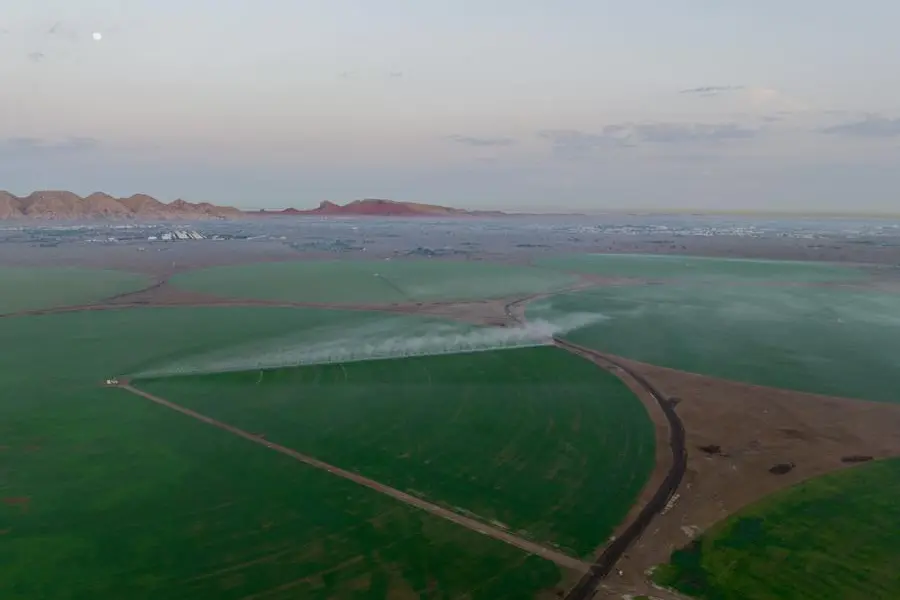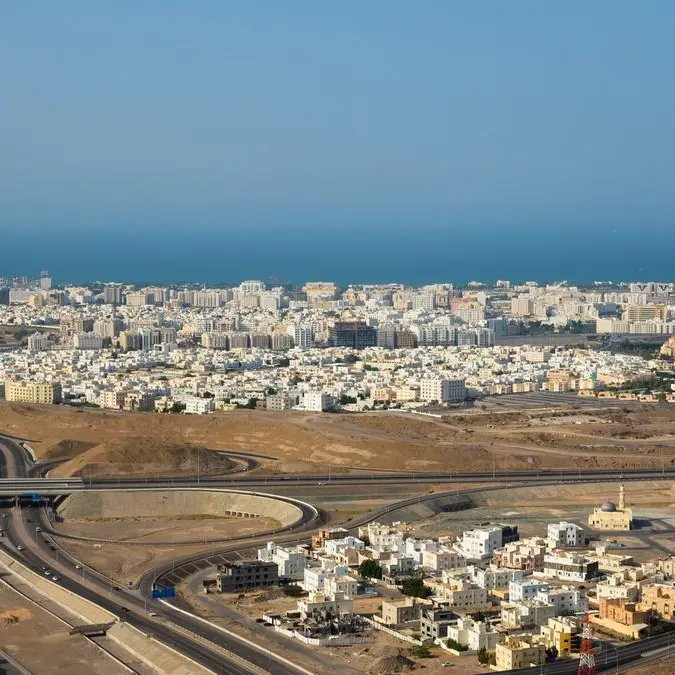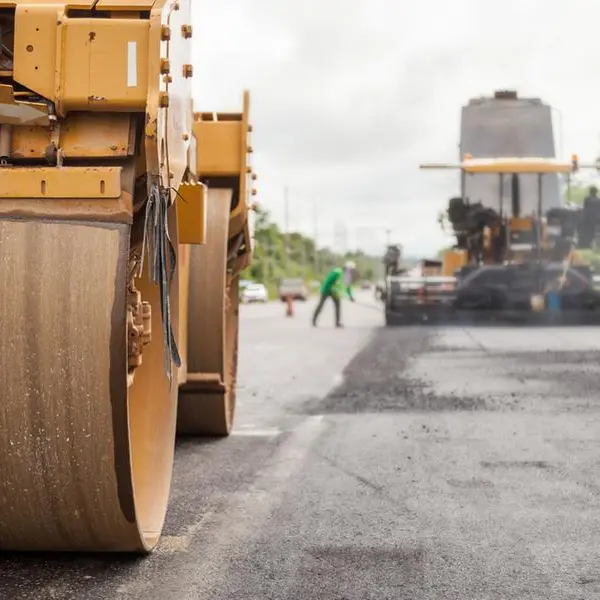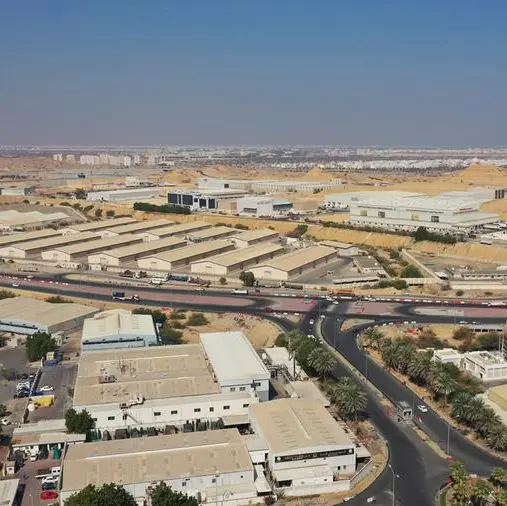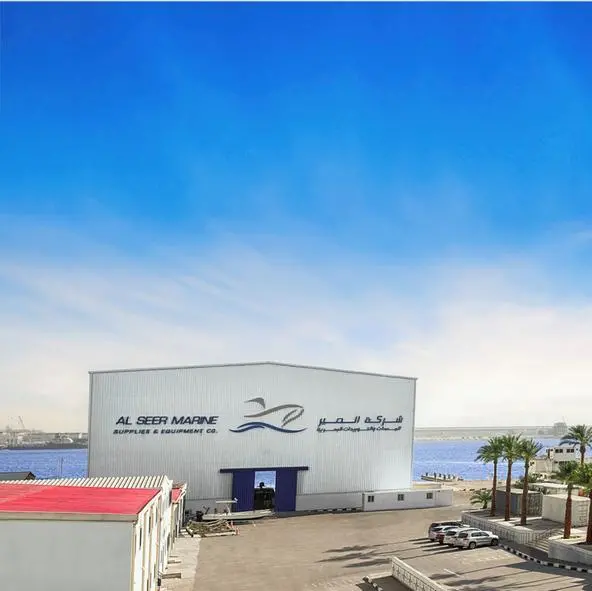PHOTO
Climate change is making agriculture more difficult worldwide, leading countries to look for solutions from those who have effectively managed similar issues. According to industry experts who spoke with Zawya Projects, the UAE has the potential to become a leader in sustainable agriculture over time by using appropriate technologies to support local farming and learning from successful projects.
"The current trend is to find fit-for-purpose solutions that match our challenges and unique market dynamics," said Yazen AlKodmani, General Manager of Emirates Bio Farm, the UAE's largest organic farm, egg producer and agri-tourism project located in Al Shuwaib, Abu Dhabi.
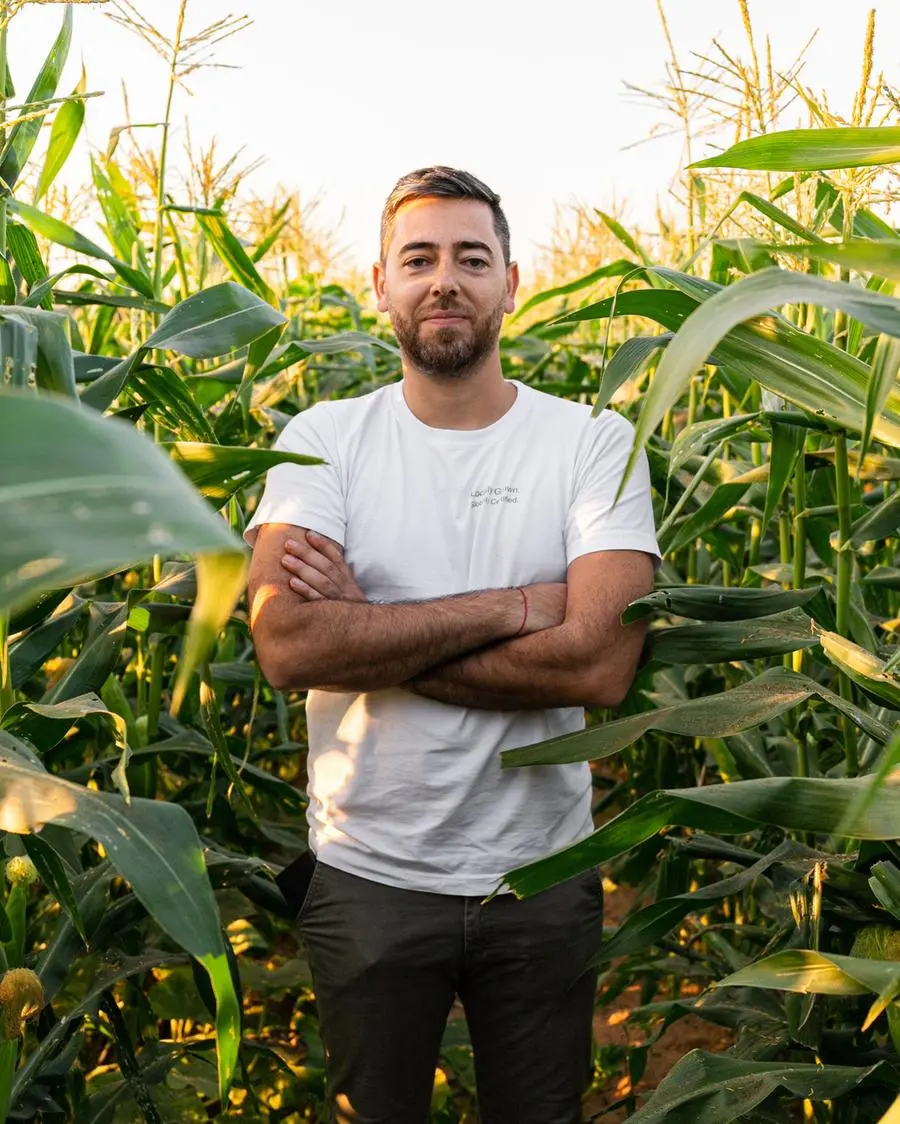

Other solutions include innovations in water saving, circularity, food loss, waste prevention/management, and exploring alternative proteins and food sources that are more suitable for the UAE's climate with minimal environmental impact.
Kodmani, who established agritech consulting firm 3y Agtech and now sits in the World Economic Forum and Mohammed bin Rashid Al Maktoum's Food Innovation Hub UAE as a senior consultant, continued: "For example, the International Centre for Biosaline Agriculture (ICBA), which is based in the UAE, has identified quinoa as the grain that can replace rice; it has high nutrition and can tolerate heat and salinity. So, the question we need to ask is - should we grow rice, or should we change our menu to be more suitable with what can be grown locally in a more sustainable fashion?"
He also mentioned the challenge of increasing groundwater salinity and ICBA's global mandate to focus on salinity in agriculture.
"If we develop seeds that grow in high salinity, we unlock lots of marginalised land that has salty earth or water," he observed.
Conversations have also begun around sustainable methods and avoiding high-capex technologies that may not provide appropriate returns on investment.
Kodmani explained: "For example, instead of greenhouses, people are talking about retractable roofs, which have much lower operating costs and a smaller utility footprint. One can still use some high-tech in irrigation and hydroponics by innovating and adapting them to the local ecosystems."
UAE's National Food Security Strategy 2051 aims to put the country at the top of the Global Food Security Index by 2051. In September 2023, the local English language daily The National quoted the Minister of Economy Abdulla bin Touq as saying that the UAE aims to boost the contribution of food and agriculture to its economy by $10 billion and create 20,000 jobs in the next five years amid measures to increase food security in the country. On 11 October 2023, the state-owned Emirates Development Bank (EDB) announced it had allocated AED 30 billion ($8.2 billion) to support 13,500 SMEs in five priority sectors, including food security, which received over AED 721 million ($196.3 million).
Kodmani commended the several innovative initiatives in the UAE but said finding financially viable projects with the right risk metrics in a nascent industry is challenging. "We also need further development in insurance products to support the risk profile of local farming," he said.
Examples of innovation in the UAE cited by Kodmani included:
· Abu Dhabi-based Silal's Innovation Oasis is mandated to test technologies suitable for the region and provide the right ecosystem for research and development of fit-for-purpose solutions.
· The Abu Dhabi Agriculture and Food Safety Authority also conducts similar trials, with many programmes aimed at knowledge building.
· The Khalifa Fund is available for local entrepreneurs and has a long history of supporting small-scale farmers and related industry projects.
· UAE University, based in Al Ain, has a strong agriculture education programme and a research centre to support student development and education.
Partnerships with governments
Industry players are also looking to align with government-led initiatives. Hassan Halawy, General Manager of Elite Agro Products, a leading Abu Dhabi-based player specialising in greenfield agricultural development projects in the public and private realms, said the company is working with Dubai Municipality and EDB to structure a product to support local farmers in line with the 'Dubai Farm' initiative, launched by the Dubai Crown Prince Sheikh Hamdan in March 2024 to support Emirati farmers.
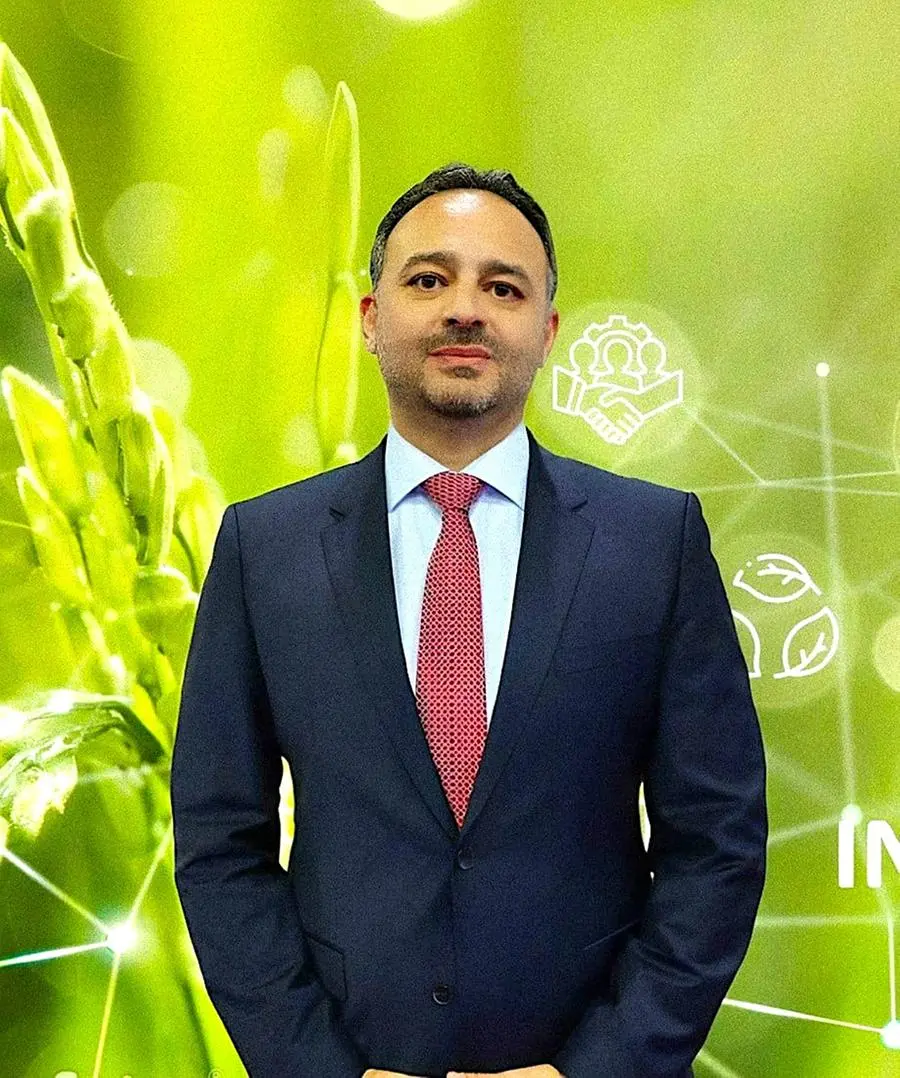

He said Ras Al Khaimah has announced some very important agricultural projects, and likewise, Sharjah and Fujairah have put strategies in place to help the agriculture sector. Other GCC countries, too, are prioritising the food security agenda by making more investments and programmes to support farmers.
However, according to Halawy, once government support ends, farmers often find private investors hesitant to invest because the risk-benefit ratio is still very low.
He continued, "We have two projects in Saudi Arabia and are looking at Iraq, Qatar, and Kuwait. In Saudi Arabia, we are developing an open-field grape farm and an experimental net house with NEOM, while the projects in Kuwait are still under evaluation. We see that investors are mostly government-backed entities and not private parties."
He also noted that despite significant investments globally, the vertical farms sector has seen several failures for several reasons.
"The biggest one is they have an extremely high cost of investment to produce a very limited variety of crops. Basically, it is still leafy greens and no food staples. So you can't grow crops labelled as cash crops," he explained.
Big players must also contend with geopolitical tensions, supply chain barriers and rising cost of capital.
"There will be more consolidation in the future to lower costs and make food more available. The rising cost of imports makes it very hard to break even," he said.
Halawy observed that the agriculture tech sector is still in the early stages, where projects tend to focus on medium-tech and open-field agriculture rather than very high-tech and advanced farms.
"People are convinced that this is the right mix for this region (moderate capex and the ease of operations) though there are still investments into the high-tech glass houses."
Competitive pricing
Meanwhile, another player, Sharjah-based Veggitech, which was acquired by Saudi's SNASCO Investments in 202, has faced challenges implementing its BOT (Build-Operate-Transfer) model in terms of support from local banks. Rami Nairat, Group CFO of SNASCO Investments, called for more governmental support for the agri sector.


He said: "Several companies closed down last year, while others did not want to continue investing because it is not viable. Also, many small farm owners don't want to continue because their prices can't match those of the global importers into UAE who sell at lower rates."
To address these scenarios, the company has started outsourcing production to farms that meet the client's specifications.
Kodmani, too, emphasised the importance of considering market prices. He said: "We [UAE] import 80 per cent of our needs - so the general assumption is that we can't or don't produce what we import. But the reality is a bit more complicated. What we can produce very well - cucumbers, tomatoes, peppers, poultry and eggs, to name a few - farmers struggle to sell at sustainable price points and compete on market shelves."
He pointed out that the UAE's trading partners have vastly different agricultural cost structures. Subsidies and protectionist measures in some countries can make imports cheaper, undercutting domestic products even if UAE farms are efficient and invest in technology. This imbalance in operating environments creates a significant hurdle for local agriculture.
"We should aim for stronger oversight and enforcement of existing legislation to improve the price of the highly demanded local products. This improvement in financial metrics should support local farming in becoming self-sufficient and investing in expanding production," said Kodmani.
He further emphasised that UAE produce should be correctly labelled, promoted and supported.
"We must ensure that imports are not labelled as local as this is a huge threat to local food security and directly impacts local farmers' livelihoods," he stressed, adding that fake labels also depress market prices.
He identified the rising demand for organic produce as a significant opportunity for local farmers, noting that while existing farming ecosystems may find it challenging to convert to this model, relatively new farms and producers can achieve organic certification when they expand into untouched land.
"Our markets have strong spending power, and our resources are too precious to waste competing on very cheap conventional products. We should be promoting premium-ize, organic, high-quality products, and we have an opportunity to be leaders in the segment," he said.
Nairat revealed that his company built a greenhouse on the rooftop of the FIVE Jumeirah Hotel in JVC and has received enquiries from the Taj Hotels Group.
He elaborated: "Most hotels and restaurants plan to have an aspect that meets the criteria for sustainability. So the Horeca [hotel, restaurant and café] sector has some potential for us as a business - the enquiries range from AED150,000 -250,000 for small greenhouses, domes or indoor vertical farms, where the hotel can grow good enough quantity to show the customer where the fresh product is coming from - a sustainable solution that makes a good impact."
The company is also capitalising on a shift in consumer behaviour where people increasingly favour shopping at local grocery stores over large supermarkets in malls to avoid traffic congestion.
"We changed our strategy and started focusing on the big groceries, which are more attractive for us due to their price and payment terms compared to the big distributors and the Horeca segment," said Nairat.
Kodmani reiterated that finding fit-for-purpose technologies and learning from existing projects and initiatives is the way forward.
"In general, I don't think there is a silver bullet to solve the challenges of feeding the world in the future," he said. "Overall, I believe the time is ripe to invest, operate and innovate in the UAE agriculture sector towards an impactful goal. The challenges we solve today in a country like the UAE, with its extreme temperatures, sandy soils and lack of fresh water, will be solutions that will help the rest of the world in the near future."
(Reporting by Sona Nambiar; Editing by Anoop Menon)
Subscribe to our Projects' PULSE newsletter that brings you trustworthy news, updates and insights on project activities, developments, and partnerships across sectors in the Middle East and Africa
